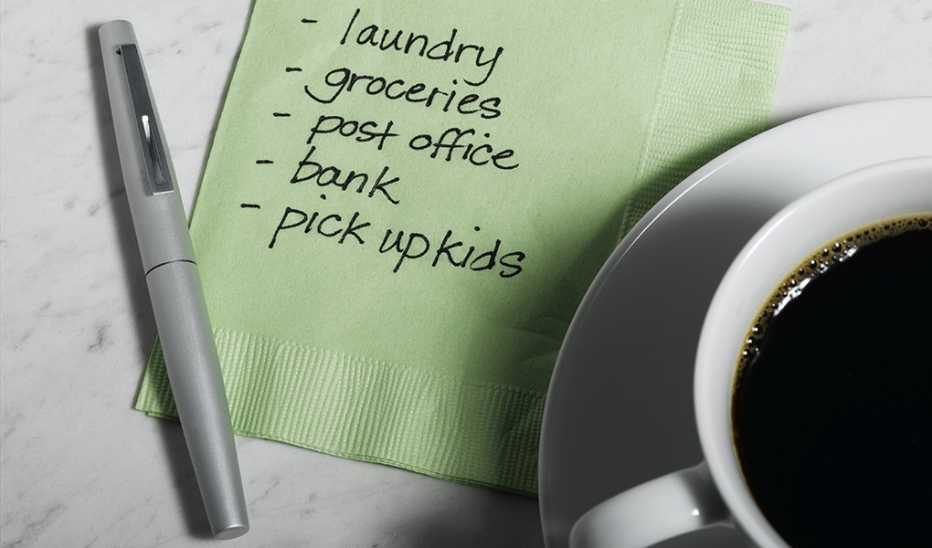Challenges


Think you can function these days without some version of a "to-do" list? Good luck with that, especially given the demands of a job and running a household.
Besides, it can be satisfying to cross things off that list as you hit the post office, the dry cleaner and the grocery store on your way home from the gym. But is list-making a crutch that indicates a cognitive problem? Or is it a tool that not only keeps us functioning well, but also helps keep our minds sharp?
The answer is, it's not a crutch, nor is it going to sharpen your mind. However, if it works for you, keep doing it. (And don't worry about it.)
Unfortunately, the normal decline in cognition that comes with age may include a reduced attention span, slower response times, more errors when you try to multitask and less ability to retain new information — and that new information may be your dentist appointment tomorrow. None of this, however, is considered dementia.
Jeffrey Keller, director of Pennington Biomedical Research Center's Institute for Dementia Research and Prevention in Baton Rouge, La., says being efficient and organized by keeping ongoing lists is not a sign that someone has a cognitive problem. "If someone increasingly over time begins to require a list to complete simple or routine tasks, it is also unlikely there is a problem," he adds.
However, if you feel unable to perform a routine task even with that list right in front of you, or you suddenly feel the need to add "take a shower" to your list (when you've never needed such a reminder before), something might be amiss.
More important, if you stop engaging in a regular activity, such as meeting friends for coffee every Sunday at 10, even with the help of a list, it's time to talk to your doctor.
To stay sharp as you age, says R. Scott Turner, a neurologist and director of the Memory Disorders Program at Georgetown University Medical Center, follow these practices, which have shown the most evidence of being effective:
- Maintain an ideal body weight.
- Stay physically active, exercising daily or at least three times per week.
- Eat a Mediterranean diet (staples include olive oil, fruits, vegetables, beans, nuts and fish).
- Don't smoke.
- Wear seat belts (and bike helmets) to avoid head injuries.
- Stay mentally active with hobbies you enjoy.
- Stay socially active and maintain close relationships.
- Drink alcohol only in moderation (one serving daily).
- Monitor your cholesterol, glucose and blood pressure, and have your health care provider treat any related illnesses that may arise.











More From Staying Sharp
Better Your Brain the Bilingual Way
It's never too late to learn a second language
7 Ways to Strengthen Your Intuition
Learning how to recognize it is half the battle
Get In Tune With Music
Music and the brain have a harmonious relationship